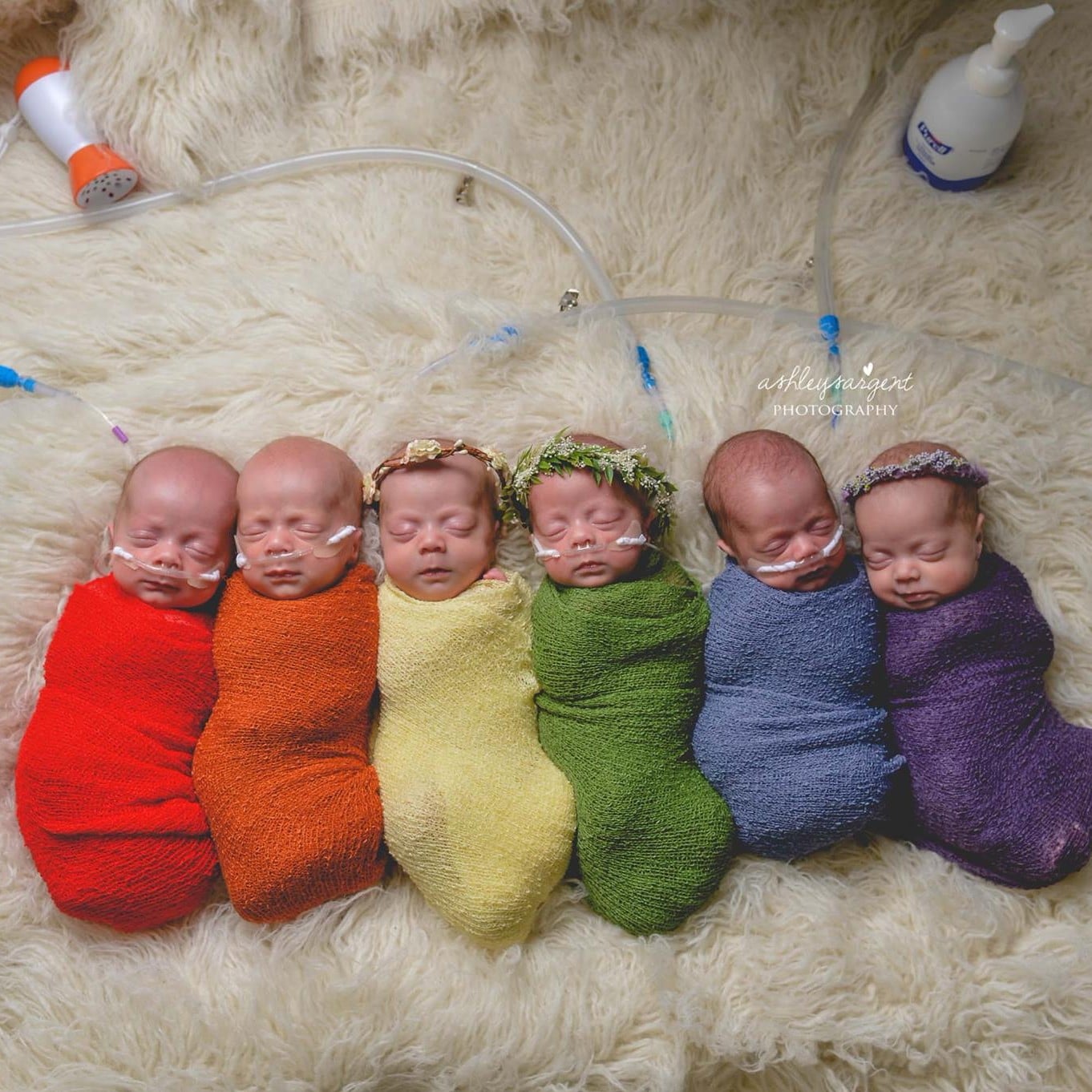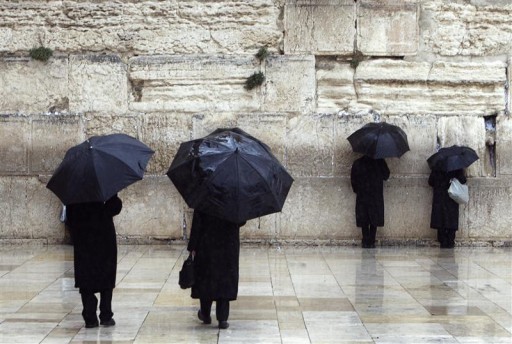Shiur Gimmel Iyar, 5780. May 26, 2020
ניסים
1-
- Story of a town that was overwhelmed with soldiers staying in their private homes. Tzadik accepted a donation, gave a Brocha and the soldiers left. Turns out they were scheduled to leave before approaching and giving a donation to the Tzadik. Townspeople wanted their donation returned.
- Maharsham ruled for the Tzadik as it is possible that since הקב”ה knew they were going to donate to charity and ask for a Brachah and He set it up before they approached the Tzadik.
- His source was from the Oved Edom story. עובד אדם although the ארון was in his house כםר only three months he was blessed with his daughter in laws giving birth within these three months!
- Meaning they were expecting before Oved Edom graciously took the ארון into his house. [Medrash has another explanation. See text below]
- The Maharsham’s conclusion: A miracle can begin to develop even before one asks for it or merits to deserve it.
- Oved Edom’s respect for the ארון. See text below.
דין תורה. מהרש”ם. רופא.
אוח”ח. פגיעאל בן עכרן. ברכה לבנים. כמו עובד אדום הגיתי.
שילה 369. נוב 13. גבעון -50.
דוד זמירות. מעשה עוזא.
עובד אדם. [ר’ חאניע הי”ד]
פרטי הסיפור במב”ר פ”ב. שני דברים גדולים וקדושים. קטורת וארון. נר אחד!
איך תוך ג’ חדשים ילדו כל אחת ששה?
- שישה בכרס אחד. ברכות שם.

- כל חודש ב ילדים- ירושלמי יבמות. במדבר רבה שם.
- או שנתעברו מקודם! ס’ זאת מנוחתי ברכות שם. מהרש”ם.

2-
- Story of Binyomin
- Was he married when he met Yosef?
- Did he have children at that time?
- 2 versions of the story. Rashi and one גירסא in the Zohar.
- Zohar- He was married but didn’t have a relationship with his wife due to his mourning for Yosef! The ten names of his ‘children’ he related to Yosef were ‘if I had children’ that is what I would name them!
- Only when Yosef revealed himself to his brothers did he begin to procreate.
- They were born after the family of Yakov arrived in מצרים.
- Did Binyomin return to ארץ ישראל? Did Yehuda fulfill his obligation to his father to bring back Binyomin?
- Ragatchover’s explanation.
סיפור של בנימין –
האם חזר לא”י? ערבות של יהודה. מכות יא, ב.
מתי התחתן. מתי נולדו לו בנים.
ב’ גרסאות בזוהר. בראשית קנג. עי”ש במ”ש הרח”ו ז”ל. ובניצוצי זהר. כבר ילדו לו. או בתוך הזמן שחזר. או שבכוח הי’ לו. ונולדו אחרי שבאו למצרים! וזשה”כ הבאים. לא שבאו.
חרם של יהודה. מכות יא ב. רגצובי.
http://www.shiurpoints.com/?p=191
—————————————————
 3-
3-
- Parallels to starting a fast and the reason for the fast passes. Example – fasting for rain and it begins to rain at 11 AM.
- Does one need to finish the fast?

- What if the rains before the fast begins?
- Story of the fellow who pledged a new hospital wing if the administration will call the needed specialist to cut his vacation short and return to the hospital. Surgeon did return but his decision to return was made before the hospital reached him.
- Story of the group escaping war torn Hungary. A woman pledged her jewelry to charity if she would be saved. Turns out at the time of her pledge she was not in danger any longer.
תענית. בשו”ע תקס”ט. אם עבר הגזירה – יחיד צריך להשלים. ציבור- לפני חצות אין משלימין. משום טורח או משום לב ב”ד מתנה עליהם, מ”א וט”ז.
אם נודע שלפני הקבלה כבר התבטלה והקבלה היתה בטעות- א”צ להשלים.
ואם נדר בתנאי, כגון ע”מ וכו’. א”צ לשלם. רמ”א יו”ד רכ, טו.
נדר לבית רופאים אם הרופא יחזור. אבל הרופא החליט כבר לחזור.
נדר שאם בנו ישוב ‘בשלום’ מהמלחמה. וחזר עם נוכרי’ ר”ל.
ברחו וחשבו שטרם עברו את הגבול. ונדרו. והתברר שכבר חצו את הגבול.
——————————————————-
4-
- After the Nazir finishes his נזירות it says that he should/could drink wine. Isn’t it obvious? Nazir needs to drink wine after his נזירות term is over to show that his refraining from wine was not because he disliked it. He does indeed like wine. It’s the מצוה that kept him back from drinking it.

- The famous Yerushalmi that a person will be asked by בית דין של מעלה if he tasted all the fine foods he came across while in עולם הזה.
- How does this jive with אתכפי’ ואתהפכא?
- Question of Yalta, wife of Rav Nachman, what tastes like בשר וחלב and yet is kosher? See text below.
- The meaning of her question: We keep kosher not because we do not know what non-Kosher food tastes like. For every non-kosher dish there is a similar kosher dish with the same taste.

- She was wondering about בשר וחלב.
- Targum of Yonasan Ben Uziel. Right after Pesach one must eat bread. Why? To show, as above, our not eating חמץ was purely because of the Torah commandment.
וְאַחַר יִשְׁתֶּה הַנָּזִיר יָיִן.
חולין קט, ב. שאלות ילתא לר’ נחמן. בשר וחלב.
להראות שנזר רק מחמת פרישות.
חמץ בערב פסח. תרגום יוב”ע
[ שמות יב, יח. – ואחרי פסח תיכלון חמיע!
ששת ימים תעבוד. מוקצה.
ירושלמי נדרים רפ”ט. שמונה פרקים. לקו”ת במדבר פד, ב. לקו”ש א.
גוט יום טוב. קבלת התורה בשמחה ובפנימיות.
———————————————————————————-
פתח ר’ אליעזר בנו של ר’ יוסי הגלילי בכבוד אכסניא ודרש: (שמואל ב ו, יא) ויברך ה’ את עובד אדום (הגתי) בעבור ארון האלהים והלא דברים ק”ו ומה ארון שלא אכל ושתה אלא כבד ורבץ לפניו כך המארח תלמיד חכם בתוך ביתו ומאכילו ומשקהו ומהנהו מנכסיו עאכ”ו מאי היא ברכה שברכו אמר רב יהודה בר זבידא זו חמות וח’ כלותיה שילדו ששה ששה בכרס אחד. שנאמר (דברי הימים א כו, ה) פעלתי השמיני וכתיב (דברי הימים א כו, ה) כי ברכו אלהים (דברי הימים א כו, ח) כל אלה מבני עובד אדום המה ובניהם ואחיהם איש חיל בכח לעבודה ששים ושנים לעובד אדום.
Rabbi Eliezer, son of Rabbi Yosei HaGelili, began to speak in honor of the hosts, and taught: It is stated: “The Lord has blessed the house of Oved-edom…because of the ark of God” (II Samuel 6:12). Just as in reward for honoring the ark, which neither ate nor drank, but before which Oved-edom simply swept and sprinkled water to settle the dust, he was treated this way and merited a blessing, all the more so should one who hosts a Torah scholar in his home, providing him with food and drink and availing him of his possessions without concern for his personal gain, be rewarded with such a blessing.
The Gemara asks: What is that blessing with which Oved-edom was blessed? Rav Yehuda bar Zevida said: This is Ḥamot and her eight daughters-in-law, each of whom bore six in a single womb, as it is stated: “And Oved-edom had sons…Peulletai the eighth,” and in the continuation of the same verse it is written: “For God blessed him” (I Chronicles 26:4–5); apparently, these eight children were the blessing, as it is stated: “All these were of the sons of Oved-edom; they and their sons and their brethren, able men in strength for the service; sixty-two of Oved-edom” (I Chronicles 26:8). Each of the nine women gave birth to six sons, for a total of fifty-four. If one adds the original eight, there were sixty-two altogether.
במדבר רבה ד.
לֹא אָבָה דָּוִד לְהָסִיר אֵלָיו אֶת אֲרוֹן ה’ וגו’ וַיַּטֵּהוּ דָוִד בֵּית עֹבֵד אֱדֹם הַגִּתִּי. לֵוִי הָיָה עוֹבֵד אֱדוֹם הַגִּתִּי, שֶׁכֵּן מְיַחֲסוֹ עִם הַלְוִיִּם, וְעוֹבֵד אֱדוֹם וְאֶחָיו שִׁשִּׁים וּשְׁנַיִם. וְלָמָּה נִקְרָא שְׁמוֹ עֹבֵד, עַל יְדֵי שֶׁעָבַד לִפְנֵי ה’ כָּרָאוּי. אֱדֹם, שֶׁהֶאְדִּים פְּנֵי דָוִד, הוּא הָיָה מִתְיָרֵא מִפְּנֵי הָאָרוֹן שֶׁלֹא יְמִיתֶנוּ, וְהוּא עוֹבֵד לְפָנָיו וּבֵרְכוֹ הַקָּדוֹשׁ בָּרוּךְ הוּא. הַגִּתִּי, שֶׁהָיָה מִגַּת.
(שמואל ב ו, יא): וַיֵּשֶׁב אֲרוֹן ה’ בֵּית עֹבֵד אֱדֹם הַגִּתִּי, אָמְרוּ רַבּוֹתֵינוּ שְׁנֵי דְבָרִים הָיוּ קְדוֹשִׁים וּגְדוֹלִים, וְכִסְּבוּרִין בְּנֵי אָדָם שֶׁהֵם קָשִׁים, וּכְדֵי שֶׁלֹא לְהוֹצִיא לַעַז עֲלֵיהֶם כָּתַב בָּהֶן דָּבָר גָּדוֹל שֶׁל שֶׁבַח וּבְרָכָה, וְאֵלּוּ הֵן: קְטֹרֶת וְאָרוֹן. קְטֹרֶת שֶׁלֹא יֹאמַר אָדָם קָשֶׁה הוּא הַקְּטֹרֶת, עַל יָדוֹ מֵתוּ נָדָב וַאֲבִיהוּא, וְעַל יָדוֹ נִשְׂרְפוּ עֲדַת קֹרַח, וְעַל יָדוֹ נִצְטָרַע עֻזִּיָּהוּ, לְכָךְ כָּתַב הַקָּדוֹשׁ בָּרוּךְ הוּא מַעֲלָה גְדוֹלָה בַּקְּטֹרֶת שֶׁנִּצְּלוּ יִשְׂרָאֵל עַל יָדוֹ, שֶׁנֶּאֱמַר (במדבר יז, יב יג): וַיִּקַּח אַהֲרֹן כַּאֲשֶׁר דִּבֶּר משֶׁה וַיָּרָץ אֶל תּוֹךְ הַקָּהָל וגו’. אָרוֹן, שֶׁלֹא יֹאמַר אָדָם קָשֶׁה הוּא הָאָרוֹן, הוּא הִכָּה בַּפְּלִשְׁתִּים, הוּא הָרַג בְּאַנְשֵׁי בֵּית שֶׁמֶשׁ, הוא הָרַג לְעֻזָּא, לְכָךְ כָּתַב בּוֹ בְּרָכָה, שֶׁנֶּאֱמַר (שמואל ב ו, יא): וַיֵּשֶׁב אֲרוֹן ה’ וגו’, לְלַמֶּדְךָ שֶׁאֵין קְטֹרֶת וְאָרוֹן הוֹרְגִין אֶלָּא עֲוֹנוֹת הוֹרְגִין.
בַּמֶּה בֵּרַךְ הַקָּדוֹשׁ בָּרוּךְ הוּא בֵּית עוֹבֵד אֱדוֹם, רַבִּי יוֹסֵי אוֹמֵר בְּבָנִים, הֲדָא הוּא דִכְתִיב (דברי הימים א כו, ד ה): וּלְעֹבֵד אֱדֹם בָּנִים שְׁמַעְיָה הַבְּכוֹר וגו’ יוֹאָח הַשְּׁלִשִׁי וְשָׂכָר הָרְבִיעִי וּנְתַנְאֵל וגו’ פְּעֻלְּתַי הַשְּׁמִינִי. בְּעוֹן קוֹמֵי רַבִּי יוֹחָנָן מַהוּ פְּעֻלְּתַי, אָמַר לָהֶם עַל שֶׁפָּעַל פְּעֻלָּה גְדוֹלָה בַּתּוֹרָה, מַה פְּעֻלָּה גְדוֹלָה פָּעַל שֶׁהָיָה מַדְלִיק לִפְנֵי הָאָרוֹן נֵר אֶחָד שַׁחֲרִית וְנֵר אֶחָד עַרְבִית.
רַבִּי יוֹסֵי עֲבַד לָהּ אַפְטָרָה מַה אִם הָאָרוֹן שֶׁלֹא אָכַל וְשָׁתָה וְלֹא מִתְכַּבֵּד אֶלָּא בִּשְׁבִיל שְׁנֵי לוּחוֹת שֶׁהָיוּ בּוֹ זָכָה בֵּית עוֹבֵד אֱדוֹם שֶׁיִּתְבָּרֵךְ בִּזְכוּתוֹ, מִי שֶׁקִּבֵּל חֲכָמִים וְתַלְמִידִים בְּמַאֲכָל וּבְמִשְׁתֶּה וְעַל מִטּוֹת כְּבוּדוֹת, עַל אַחַת כַּמָּה וְכַמָּה שֶׁיְשַׁלֵּם לוֹ הַקָּדוֹשׁ בָּרוּךְ הוּא שְׂכָרוֹ.
אָמְרוּ עַל עוֹבֵד אֱדוֹם שְׁמוֹנָה בָּנִים הָיוּ לוֹ וּשְׁמוֹנֶה כַּלּוֹת הָיוּ לוֹ וְכָל חֲדָא וַחֲדָא מִנְּהוֹן יָלְדָה תְּרֵין בְּיַרְחָא, הָא כֵיצַד, הָיְתָה טְמֵאָה שִׁבְעָה וּטְהוֹרָה שִׁבְעָה וְיוֹלֶדֶת, טְמֵאָה שִׁבְעָה וּטְהוֹרָה שִׁבְעָה וְיוֹלֶדֶת, שִׁית עֲשַׂר לְכָל יְרַח, לִתְלָתָא יַרְחִין הֲרֵי אַרְבְּעִין וּתְמַנְיָא. וּבְנֵי שְׁמַעְיָה שִׁשָּׁה, דִּכְתִיב (דברי הימים א כו, ו ז): וְלִשְׁמַעְיָה בְנוֹ נוֹלַד בָּנִים וגו’ בְּנֵי שְׁמַעְיָה עָתְנִי וגו’, הָא חַמְשִׁין וְאַרְבַּע, תְּמַנְיָא דִידֵיהּ, דִּכְתִיב: וּלְעֹבֵד אֱדֹם בָּנִים וגו’ הָא שִׁתִּין וּתְרֵין, הֲדָא הוּא דִכְתִיב (דברי הימים א כו, ח): כָּל אֵלֶּה מִבְּנֵי עֹבֵד אֱדֹם הֵמָה וּבְנֵיהֶם וַאֲחֵיהֶם אִישׁ חַיִל בַּכֹּחַ לַעֲבֹדָה שִׁשִּׁים וּשְׁנַיִם לְעֹבֵד אֱדֹם, הֱוֵי (דברי הימים א כו, ה): כִּי בֵרְכוֹ אֱלֹהִים, לְכָךְ נֶאֱמַר (דברי הימים א יג, יד): וַיְבָרֶךְ ה’ אֶת בֵּית עֹבֵד אֱדֹם וגו’.
אמרה ליה ילתא לרב נחמן מכדי כל דאסר לן רחמנא שרא לן כוותיה אסר לן דמא שרא לן כבדא נדה דם טוהר
Chulin 109, b.
Yalta said to her husband Rav Naḥman: Now as a rule, for any item that the Merciful One prohibited to us, He permitted to us a similar item. He prohibited to us the consumption of blood, yet He permitted to us the consumption of liver, which is filled with blood and retains the taste of blood. Likewise, God prohibited sexual intercourse with a menstruating woman, but permitted sexual intercourse with one’s wife while she discharges the blood of purity. During a particular period after giving birth, even if she experiences a flow of blood she is not rendered ritually impure and remains permitted to her husband by Torah law.
חלב בהמה חלב חיה חזיר מוחא דשיבוטא גירותא לישנא דכורא
Furthermore, the Torah prohibits the consumption of the forbidden fat of a domesticated animal, but permits the fat of an undomesticated animal, which has the same flavor. It is prohibited to eat pork, but one may eat the brain of a shibuta fish, which has a similar taste. One may not eat giruta, a non-kosher fish, but one may eat the tongue of a fish, which tastes similar.
אשת איש גרושה בחיי בעלה אשת אח יבמה כותית יפת תאר בעינן למיכל בשרא בחלבא
Likewise, the Torah prohibits sexual intercourse with the wife of another man but permitted one to marry a divorced woman in her previous husband’s lifetime. The Torah prohibits sexual intercourse with one’s brother’s wife, and yet it permits one to marry his yevama, i.e., his brother’s widow when the brother dies childless. Finally, the Torah prohibits sexual intercourse with a gentile woman but permitted one to marry a beautiful woman who is a prisoner of war (see Deuteronomy 21:10–14). Yalta concluded: The Torah prohibits the consumption of meat cooked in milk; I wish to eat a dish that tastes like meat cooked in milk.
אמר להו רב נחמן לטבחי זויקו לה כחלי והאנן תנן קורעו ההוא לקדרה
Upon hearing this, Rav Naḥman said to his cooks: Roast udders on a spit for her. The Gemara asks: But didn’t we learn in the mishna that one must tear the udder first? Rav Naḥman did not tell his cooks to tear the udders. The Gemara answers: That requirement was stated only with regard to cooking in a pot, not roasting.